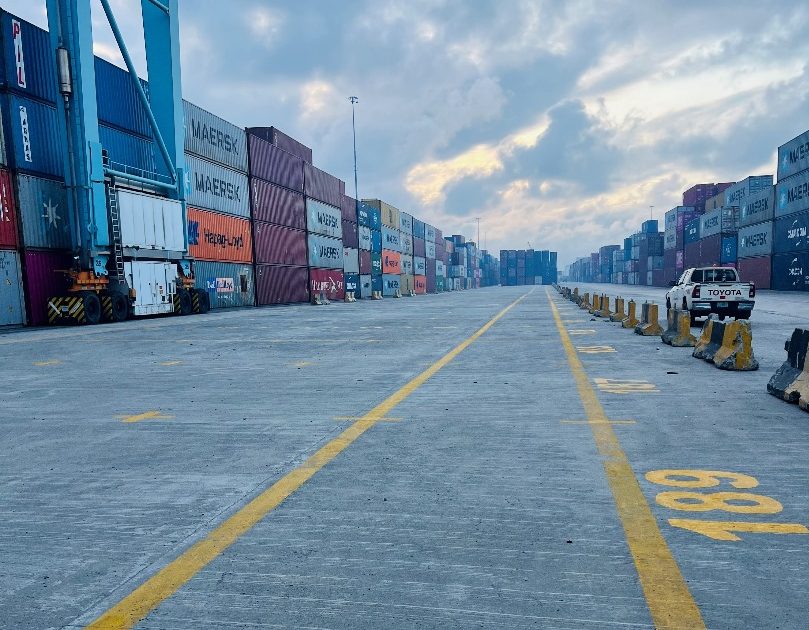APM Terminals Apapa, a major container terminal in Nigeria, is grappling with a significant congestion issue stemming from a surplus of empty containers. This has led the terminal operator to temporarily restrict the inflow of additional empty containers until the existing backlog is cleared by shipping lines. The crux of the problem lies in the responsibility for empty container management, which rests solely with the shipping lines. These companies own and control all containers, including the empties, and are responsible for both their entry into the terminal and their subsequent evacuation onto vessels.
The recent surge in import volumes has created an operational challenge for shipping lines. Faced with limited capacity and resources, they have prioritized the discharge of incoming laden containers – those filled with imported goods – over the evacuation of empty containers. This prioritization is a pragmatic business decision, allowing shipping lines to maximize the delivery of goods and maintain revenue flow. However, this has unintentionally led to a growing stockpile of empty containers within the terminal’s yard, occupying valuable space and hindering overall operational efficiency.
APM Terminals Apapa, acknowledging the impact of this congestion on various stakeholders, including truck operators, consignees, and the broader landside logistics network, has taken the proactive step of temporarily limiting the intake of further empty containers. This measure is intended to prevent the situation from escalating further while efforts are made to address the root cause of the problem. The terminal operator is actively engaging with shipping lines and relevant government authorities to expedite the process of evacuating the accumulated empty containers onto vessels. This collaborative approach underscores the systemic nature of the issue and the need for coordinated action to resolve it.
The temporary restriction on receiving empty containers is not attributed to any operational failures on the part of APM Terminals Apapa. Rather, it’s a consequence of a systemic imbalance in container traffic flow. The surge in imports has disrupted the equilibrium between incoming laden containers and outgoing empty containers, creating a bottleneck at the terminal. While shipping lines play a pivotal role in ensuring the efficient outflow of empty containers, the current high volume of imports has overwhelmed their capacity to maintain this balance. APM Terminals Apapa is committed to working within its operational capabilities to support the clearing of the backlog and the normalization of container traffic flow.
The terminal operator understands the inconvenience and potential disruptions this temporary restriction may cause to various stakeholders, including truck operators and consignees. They have appealed for patience and understanding while assuring all parties that every effort is being made to rectify the situation as quickly as possible. This includes continuous engagement with shipping lines and government authorities to expedite the evacuation of empty containers. APM Terminals Apapa remains committed to providing professional and efficient service delivery, recognizing the importance of a smooth-functioning supply chain for the Nigerian economy.
The situation at APM Terminals Apapa highlights the complex interplay of various factors within the shipping and logistics industry. Global trade dynamics, import/export balances, and operational capacity constraints can all contribute to congestion challenges at port terminals. Effective communication, collaboration, and coordinated action among stakeholders are crucial for addressing such issues and ensuring the efficient flow of goods through the supply chain. APM Terminals Apapa’s proactive engagement with shipping lines and government authorities, along with their commitment to transparency and open communication with stakeholders, demonstrates their dedication to resolving the current congestion and maintaining a functional Nigerian supply chain.














